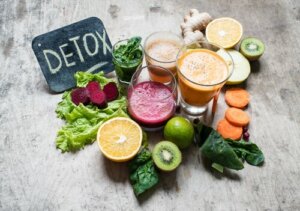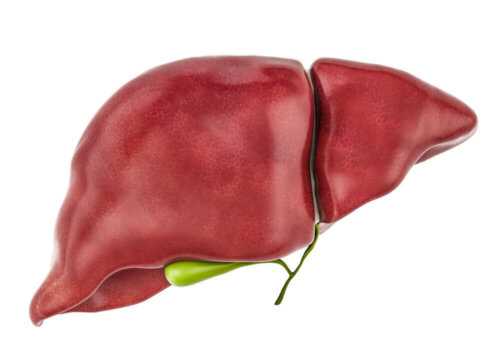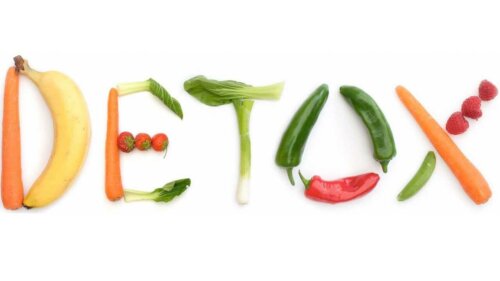What Are Toxins and How Do They Act in Your Body?


Written and verified by the doctor Leonardo Biolatto
In recent years, the media has talked about toxins, the famous detox diets, or the best way to exercise to eliminate them. However, few people really know what toxins are and why you should purify your body.
Toxins are harmful substances that are produced by cells, whether they’re plants, animals, or bacteria. In our case, they can be produced by the body or come from outside.
The problem with toxins is that when they accumulate they cause damage to our cells and tissues. Therefore, in this article, we’ll explain where these substances come from and what we can do to eliminate them.
What are toxins?
As we mentioned, toxins are substances that can be potentially harmful for your cells and tissues. They can be small molecules, proteins, or other elements that come from both outside and inside the body.
First of all, you should know that your body produces toxins all the time, due to the metabolic processes that you need to survive. For example, the mechanism by which your cells obtain energy produces free radicals.
Free radicals are unstable molecules that are considered toxins, since they can cause damage to cells if they accumulate. You also produce numerous toxins when you eat, breathe, or consume substances such as tobacco.
What happens is that you have mechanisms that allow you to neutralize all these toxins or eliminate them. When they’re neutralized, they can’t reach very high levels, which is what’s really harmful to tissues.
The two most important organs in the neutralization and elimination of toxins are the liver and the kidney. Through urine and feces, you expel a large part of them.
It’s essential that these organs work as they should, for them to purify your body correctly. Kidney and liver diseases change the detoxification process and delay the elimination of free radicals, affecting aging, for example.

You might like: Botulinum Toxin, a Lethal Poison
Other important toxins
As we mentioned above, food is an important source of toxins. Not only because of the reactions that take place inside the body to process food, but also because they can come from the food itself.
In fact, foods rich in additives and fats contain a higher percentage of toxins. The same is true for fried foods or foods processed at high temperatures. Also, substances such as tobacco or alcohol are extremely harmful.
Pollutants, such as heavy metals, which are present in some animals that we eat, are also a source of toxins. Nor can we forget that the poisons of animals such as snakes or insects are also toxic.
Ultra-processed foods, common in the current food industry, accelerate the toxin release process because of the number of steps taken to manufacture them. When you go to the grocery store, you should take care to choose the food you buy to minimize health risks.
You may be interested in: 6 Signs of an Inflamed Liver
How can you remove toxins from your body?

Although there’s advertising for numerous diets and detox formulas, there’s no scientific evidence of their benefits yet. However, it’s true that in order to eliminate harmful substances from your body you need your organs to function properly. Especially the liver and kidney.
Therefore, it’s very important to hydrate well and drink between 1.5 and 2 liters (6-8 cups) of water a day. This helps the kidney to produce more urine and cleanse itself more often.
Logically, if you reduce the harmful substances you ingest, it will also be beneficial for your health. You can do this, for example, by eliminating alcohol, tobacco, or processed and high-fat foods. In addition, you should add more fruits and vegetables into your diet.
Diets aren’t the only way to detox
We recommend you lead an active life and do moderate exercise several times a week. Through sports you also eliminate harmful substances and, in addition, reduce stress levels, which seem to be related.
What you should remember is that toxins are substances that are harmful to your tissues. However, before starting any diet or taking detox products, it’s important to get informed and consult a professional.
All cited sources were thoroughly reviewed by our team to ensure their quality, reliability, currency, and validity. The bibliography of this article was considered reliable and of academic or scientific accuracy.
- Rodríguez Perón, José Miguel, José Rogelio Menéndez López, and Yoel Trujillo López. “Radicales libres en la biomedicina y estrés oxidativo.” Revista cubana de medicina militar 30.1 (2001): 15-20.
- Sánchez-Valle, Vicente, and Nahum Méndez-Sánchez. “Estrés oxidativo, antioxidantes y enfermedad.” Médica Sur 20.3 (2018): 161-168.
- Saavedra, Octavio Maldonado, et al. “Radicales libres y su papel en las enfermedades crónico-degenerativas.” (2010).
- Cogollos Ortega, Marcos. “Antinutrientes en las dietas detox.” (2019).
This text is provided for informational purposes only and does not replace consultation with a professional. If in doubt, consult your specialist.








